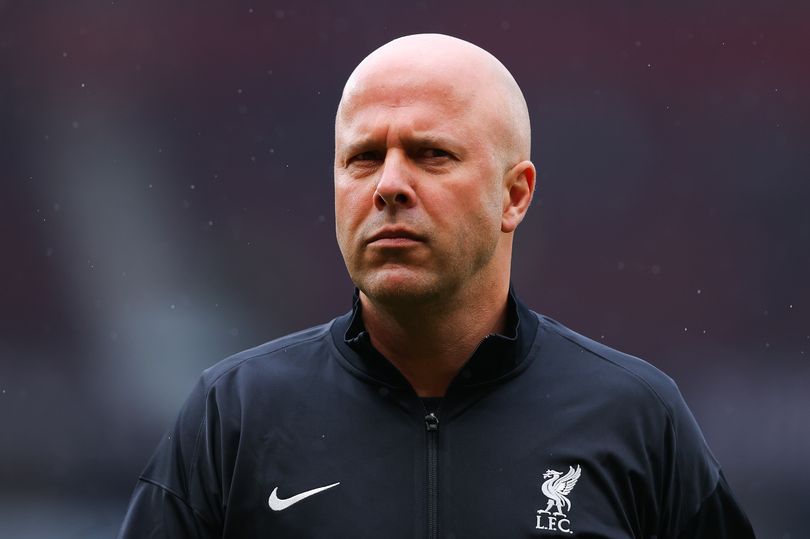In a shocking development, Liverpool FC finds itself at the center of a significant controversy following a recent transfer that has raised eyebrows across the Premier League. Rivals have come together to institute a ban on the club, citing what they allege are breaches of transfer protocols and fair play regulations. This situation not only threatens to overshadow Liverpool’s on-field success but also raises pressing questions about the governance of football transfers in the Premier League.
The events leading to the current situation began with Liverpool’s audacious attempt to secure the signing of a highly-rated young talent. The player, whose identity has yet to be officially disclosed, was considered a coveted prospect by several top clubs. Liverpool’s aggressive pursuit, culminating in an unexpected transfer deal, has drawn criticism and scrutiny from rival clubs, leading to the current sanctions.
The player at the center of the controversy is known for his exceptional skills and potential. Having made a name for himself in the youth leagues, he attracted attention from various top-tier clubs. Liverpool’s decision to move quickly and decisively to secure his signature has sparked claims of unethical practices, leading to rival clubs banding together to impose sanctions.
The primary allegation revolves around claims that Liverpool may have breached Premier League transfer regulations. Specific accusations suggest that the club engaged in discussions with the player’s representatives before formally approaching the player’s current club, potentially violating established protocols.
Rival clubs have accused Liverpool of tampering, suggesting that the club undermined the player’s existing contract with his current team. This claim hinges on the timing of Liverpool’s approach, which some rivals believe was inappropriate and undermined the competitive integrity of the league.
Financial Fair Play (FFP) regulations are designed to ensure that clubs operate within their financial means. Critics argue that Liverpool’s aggressive transfer strategy could lead to concerns about compliance with these regulations, particularly if they have circumvented rules regarding the recruitment of young talent.
In response to the ban imposed by rival clubs, Liverpool has issued a statement defending its actions. The club maintains that all transfer dealings were conducted within the rules and that they acted transparently throughout the process.
Liverpool’s management has emphasized their commitment to ethical practices and compliance with all relevant regulations. They assert that the transfer was completed in good faith and that any allegations of wrongdoing are unfounded.
Liverpool is reportedly considering legal action against the ban imposed by rival clubs. The club believes that the sanctions are not only unjust but also detrimental to their reputation and operational integrity. Legal experts suggest that Liverpool may have a case if they can prove that the ban is based on unfounded claims.
The Premier League has been thrust into the spotlight due to this controversy. As the governing body, it is now faced with the task of addressing the allegations and determining the validity of the ban imposed by rival clubs.
The Premier League is expected to launch an investigation into the transfer and the surrounding circumstances. This process will involve examining documentation related to the transfer, reviewing communications between the parties involved, and assessing compliance with regulations.
Depending on the findings of the investigation, several outcomes are possible:
1. Exoneration: If Liverpool is found to have adhered to all regulations, the ban may be lifted, allowing the club to continue its operations without interruption.
2. Sanctions Against Liverpool: If violations are confirmed, Liverpool could face sanctions ranging from fines to transfer bans or other penalties, impacting their future transfer dealings.
3. Reform Discussions: This situation could prompt discussions among Premier League clubs regarding the need for reform in transfer regulations and practices to prevent future disputes.
This controversy goes beyond Liverpool, potentially affecting the landscape of English football as a whole. The way in which this situation is handled could set precedents for future transfer dealings and rivalries among clubs.
The case may lead to a reevaluation of how clubs approach transfers, particularly concerning young talents. Increased scrutiny could foster more transparent negotiations and create stricter guidelines to prevent similar controversies.
Rivalries in the Premier League are already fierce, and this incident could escalate tensions between Liverpool and other clubs. Fans and players alike may find themselves drawn into the drama, further fueling rivalries that often define the league.
The situation underscores the need for robust governance within the Premier League. Ensuring that all clubs adhere to the same standards is essential for maintaining the integrity of the competition and protecting the interests of all stakeholders.
The ban instituted against Liverpool FC following a contentious transfer coup raises important questions about the state of football governance and transfer regulations in the Premier League. As rival clubs rally together to impose sanctions, the repercussions of this controversy could reverberate throughout English football for years to come.
As the Premier League embarks on an investigation, all eyes will be on the outcomes and the potential reforms that may arise from this situation. For Liverpool, the path forward will be challenging, but their response will be critical in shaping their reputation and future in the sport. The developments in this saga will undoubtedly be followed closely by fans, analysts, and clubs alike, as the landscape of Premier League football continues to evolve.




















